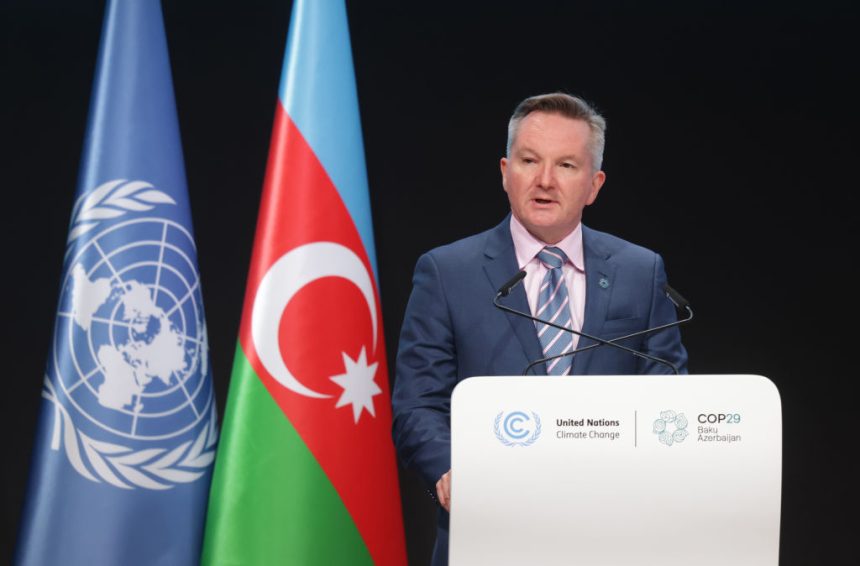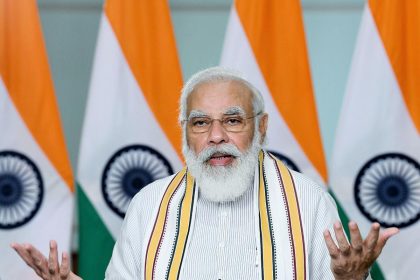Five Takeaways from the Pacific Islands Forum
At the 54th Pacific Islands Forum in Honiara, Solomon Islands, leaders from across the Pacific gathered to address growing climate threats — and to wrestle with geopolitics in the region. Below are five key takeaways relevant to China’s role, the climate crisis, and what lies ahead with COP31.
1. China’s Influence Still Contentious, But Pacific Nations Push Back
China’s role in the Pacific remains a point of tension. Solomon Islands’ host-Prime Minister blocked external “donor partners” (including China, the US, and Taiwan) from attending this Forum, a move widely seen as influenced by Beijing’s pressure to exclude Taiwan.
Despite that, Pacific leaders reaffirmed the status of Taiwan as a development partner and agreed to new rules to ensure partners like Taiwan are included in future summits.
2. Climate Finance: New Mechanisms & Critiques
Perhaps the most concrete climate outcome was the signing of the Pacific Resilience Facility Treaty, which establishes the region’s first Pacific-led climate fund. It’s intended to help vulnerable communities access climate financing more efficiently for small-scale projects.
Australia pledged AUD 100 million to this fund. But this commitment came with criticism: some leaders questioned whether Australia’s ongoing fossil fuel projects (gas, in particular) and its emissions track record are consistent with its climate rhetoric.
3. A Unified Push to Co-Host COP31
Australia’s bid to co-host COP31 in 2026 with Pacific nations received strong backing. Leaders emphasised that hosting the summit jointly would provide both symbolic and practical leverage — placing Pacific voices more centrally in global climate negotiations.
This could allow for greater attention to the issues that most affect the region: sea-level rise, climate disasters, infrastructure vulnerability, and loss & damage. sprep.org
4. Declaration of a “Blue Pacific Ocean of Peace”
Geopolitical tensions (especially between China and the US) are increasingly felt in the Pacific. As part of the Forum outcomes, leaders adopted the Blue Pacific Ocean of Peace Declaration, which asserts a desire for a demilitarized, stable region.
This declaration reflects concern that great power rivalry could threaten regional security and the ability of Pacific nations to make independent decisions on climate, resource use, and development.
5. Climate Reality: Urgency and Local Voices Amplified
Disaster risk, climate resilience, and environmental degradation were not abstract topics at the Forum — they were urgent, existential questions for the Pacific Islands. Leaders made repeated references to how rising sea levels, saltwater intrusion, coastal erosion, and stronger storms are already affecting daily life.
There was a strong call to “Act Now” — including early warning systems, small-scale adaptation projects, and ensuring that Pacific countries have greater say in global climate policy. These points set the stage for what these nations will demand at COP31.
What It Means for COP31 & Beyond
- Pacific nations are pushing to make sure COP31 doesn’t repeat past climate summits where they had limited influence. With co-host status, they hope to ensure their priorities are embedded: finance that is accessible, transparent, responsive to small communities, recognition of loss & damage, and stronger emission reductions globally.
- China’s engagement matters. Its pledges of “small and beautiful projects,” support in clean energy, and cooperation on disaster resilience demonstrate Beijing is presenting itself as a partner. However, Pacific leaders are watching to see if Chinese actions match the rhetoric — especially around fossil fuels, environmental protection in infrastructure, and whether governance concerns are addressed.
- For traditional powers like Australia and New Zealand, credibility is on the line. Their fossil fuel policies, timelines for emissions cuts, and consistency with climate aid pledges will be under scrutiny. Co-hosting COP31 gives them an opportunity, but also exposes them to greater accountability from Pacific Islanders.
- Finally, the Forum signals a stronger regional unity. The voice of Pacific leaders is growing louder internationally. The new climate fund, declarations, and mechanisms may help level up their bargaining power in international fora.











